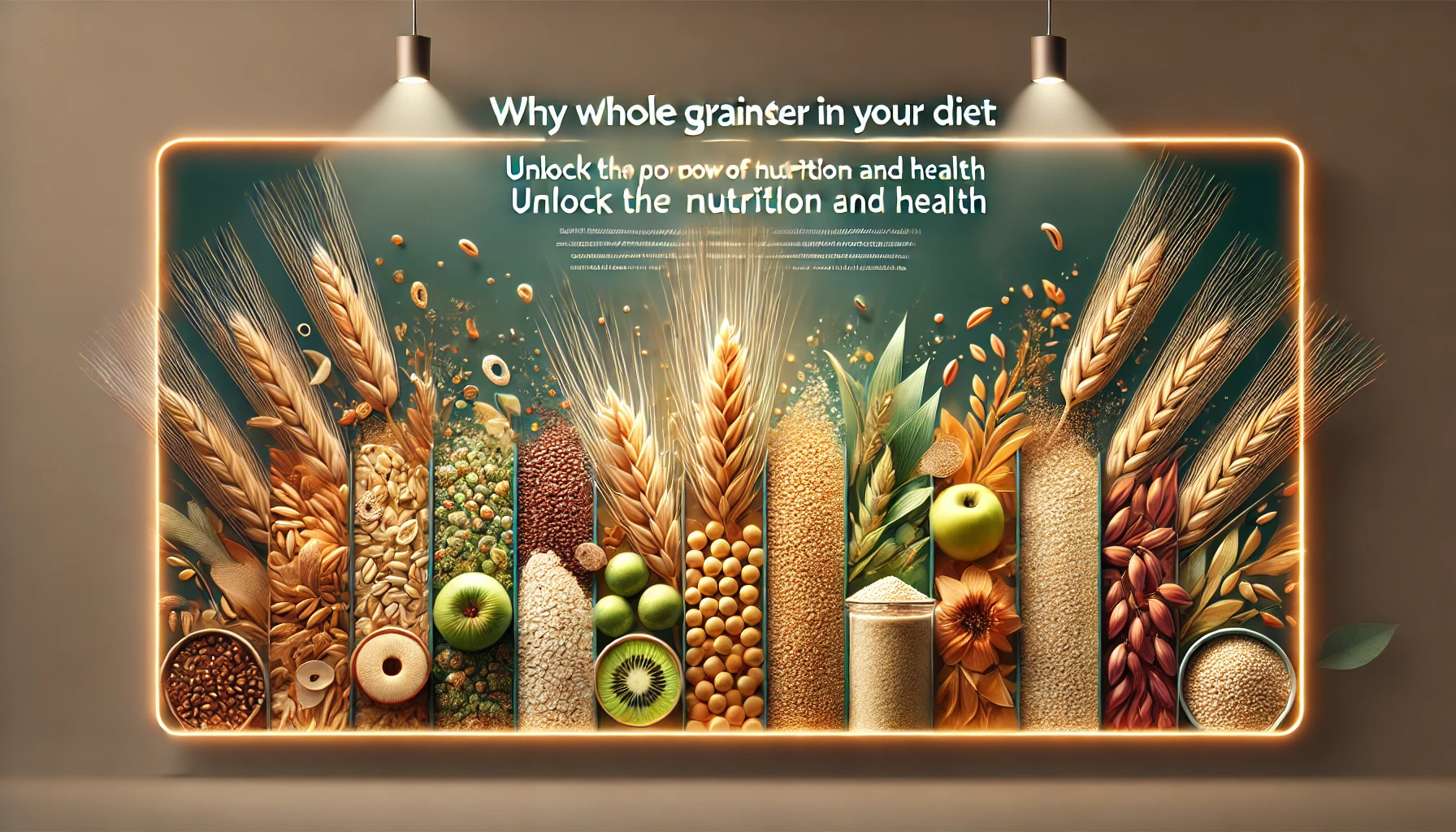Whole grains are nutritional powerhouses. Packed with essential nutrients, they play a pivotal role in a healthy diet, aiding in digestion, reducing the risk of chronic diseases, and boosting overall well-being. But why exactly do whole grains matter? This article delves into their significance, how they impact your body, and why integrating them into your meals is a step toward better health.
What Are Whole Grains?
Whole grains refer to grains that contain all three parts of the grain kernel: the bran, germ, and endosperm. Unlike refined grains, which are stripped of the bran and germ during processing, whole grains retain their nutrients, fiber, and natural oils. Popular examples include oats, brown rice, quinoa, whole wheat, barley, and millet.
Nutritional Benefits of Whole Grains
Whole grains are nutrient-dense, offering:
- Fiber: Supports digestion and promotes satiety.
- B Vitamins: Boost energy metabolism and brain health.
- Minerals: Magnesium, zinc, and iron strengthen immunity and support bone health.
- Antioxidants: Combat inflammation and oxidative stress.
How Whole Grains Support Digestive Health
Fiber-rich whole grains aid digestion by promoting regular bowel movements and maintaining a healthy gut microbiome. Fiber acts as a prebiotic, feeding beneficial bacteria and enhancing overall gut health.
Whole Grains and Heart Health
Studies show that diets rich in whole grains reduce the risk of heart disease by lowering cholesterol and regulating blood pressure. Soluble fiber, found in oats and barley, is particularly effective in managing cholesterol levels.
The Role of Whole Grains in Weight Management
Whole grains promote feelings of fullness, reducing the likelihood of overeating. Their high fiber content slows digestion, stabilizing blood sugar levels and curbing hunger pangs. This makes them a smart choice for those looking to maintain or lose weight.
Preventing Chronic Diseases with Whole Grains
Incorporating whole grains into your diet can reduce the risk of type 2 diabetes, certain cancers, and stroke. Their nutrient-rich profile combats inflammation and supports the body’s defenses against disease.
Whole Grains vs. Refined Grains
Refined grains lose essential nutrients during processing, making them less beneficial than whole grains. While refined grains offer quick energy, they lack fiber, vitamins, and minerals that whole grains provide in abundance.
Whole Grains for Sustained Energy
Complex carbohydrates in whole grains provide a steady energy release, unlike the sugar spikes caused by refined grains. This makes them an excellent choice for maintaining energy throughout the day.
Incorporating Whole Grains into Your Meals
Adding whole grains to your diet is simple:
- Start your day with oatmeal or whole-grain cereal.
- Opt for brown rice, quinoa, or barley as side dishes.
- Replace white bread and pasta with whole-grain alternatives.
Common Misconceptions About Whole Grains
Some believe whole grains cause weight gain or digestive discomfort. In truth, these issues often arise from excessive portions or sudden dietary changes. Moderation and gradual inclusion are key.
Whole Grains in Different Cultures
Whole grains have been staples in diets worldwide. Examples include quinoa in South America, millet in Africa, and barley in the Middle East. Their versatility and nutritional value make them integral to diverse cuisines.
Tips for Buying and Storing Whole Grains
- Look for labels stating “100% whole grain.”
- Store grains in airtight containers to maintain freshness.
- Avoid processed versions with added sugars or preservatives.
Cooking Whole Grains: A Beginner’s Guide
Cooking whole grains is straightforward:
- Rinse grains under cold water.
- Use a water-to-grain ratio (e.g., 2:1 for rice).
- Simmer until tender and water is absorbed.
The Environmental Benefits of Whole Grains
Whole grains often have a lower environmental impact compared to processed foods. Choosing local and sustainably grown grains supports eco-friendly practices.
The Connection Between Whole Grains and Longevity
Research links whole grain consumption to longer lifespans due to their role in preventing chronic illnesses and supporting overall health.
FAQs
Whole grains retain all parts of the grain, offering more fiber, vitamins, and minerals compared to nutrient-depleted refined grains.
Health guidelines recommend at least three servings of whole grains per day, depending on your age and activity level.
Yes, their high fiber content promotes satiety and stabilizes blood sugar, helping manage hunger and weight.
Some whole grains, like quinoa and millet, are naturally gluten-free and suitable for those with gluten sensitivities.
Brown rice, oats, and quinoa are beginner-friendly and require minimal preparation.
Start by replacing refined grains with whole-grain versions in your favorite recipes, and gradually increase their portion in your meals.
Conclusion
Whole grains are more than just a healthy addition to your plate—they’re a cornerstone of a balanced diet. From enhancing digestion to supporting heart health and preventing chronic diseases, their benefits are undeniable. By incorporating whole grains into your meals, you’re investing in a healthier, happier future.
Suggestion
- Check out these website: Whole Grains Council, ChooseMyPlate.gov.



